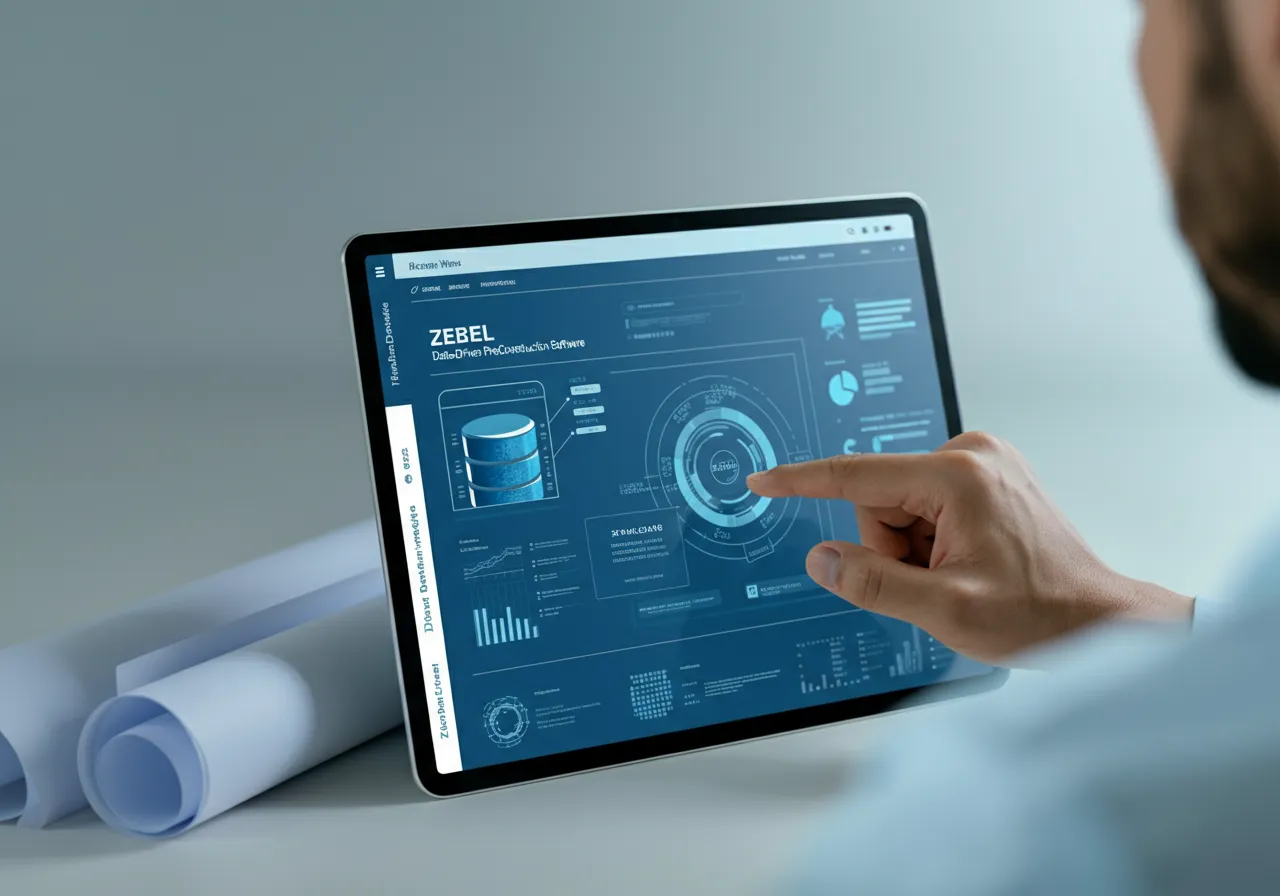The construction industry is no stranger to complexity—project costs, volatile material prices, labor shortages, and tight timelines are just the beginning. Yet, with all its moving parts, one thing remains constant in ensuring a project’s success—accurate construction cost forecasting.
Recent studies show that 91.5% of large projects go over budget, over schedule, or both, mainly due to poor forecasting and unexpected overruns. Understanding and mastering construction cost forecasting could be the difference between a profitable project and one that drains resources.
This blog will walk you through the fundamentals of construction cost forecasting, its importance, the challenges involved, and how industry professionals equipped with the right tools can streamline the process.
What Is Construction Project Cost Forecasting?
Construction project cost forecasting is the process of estimating and predicting future project expenses using historical data, project-specific metrics, and real-time insights. It allows project management professionals to anticipate costs related to labor, materials, equipment, overheads, and more.
Project forecasting typically evolves through project phases, such as:
- Conceptual Forecasting: Early estimates based on limited project details, often created during feasibility analysis.
- Detailed Forecasting: Comprehensive estimates accounting for the evolving project design, timelines, and market conditions.
Application of Forecasting in Construction Project Management
Cost forecasting is used throughout a project’s lifecycle—from preconstruction planning and budget allocation to real-time adjustments during execution. It ensures informed, data-driven decision-making for all stakeholders.
What are the Different Types of Cost Forecasting in Construction?
There are various types of cost forecasting used in the construction business, each serving a unique purpose. The most common ones include:
- Cash Flow Forecasting: This type of forecasting predicts the cash inflows and outflows for a project, helping construction companies manage their finances better.
- Material Forecasts: Material costs often account for a significant portion of overall project expenses. Material forecasts help in predicting these costs based on historical data, market trends, and supplier prices.
- Job Costing: Job costing involves tracking actual expenses against budgeted estimates throughout a project’s duration. It allows construction managers to identify potential issues and make adjustments to stay within budget.
Why is Construction Cost Forecasting Important?
Accurate construction cost forecasting is essential for mitigating financial risks and maintaining project health and viability. The points below highlight the key reasons why this process is so critical to successful construction management.
Project Budgeting and Financial Planning
Accurate forecasts ensure realistic budgets are set, minimizing disruptions caused by unforeseen cost surprises. This creates a foundation for:
- Proper allocation of resources
- Setting contingency funds for risk mitigation
- Managing cash flow effectively
Risk Mitigation
Forecasting helps identify areas prone to cost overruns before they occur—for instance, fluctuations in material costs or labor shortages. Proactive measures, such as sourcing alternative suppliers or adjusting timelines, ensure successful risk management.
Stakeholder Communication
Effective cost forecasting improves communication among stakeholders like general contractors, developers, and subcontractors. It establishes transparency, builds trust, and aligns all parties with project expectations.
Profitability and Cost Control
Consistent forecasting during project execution enables tighter cost control. It offers insights into project performance, helping businesses secure profitability through:
- Avoiding unnecessary expenditures
- Optimizing labor and material usage
Real-World Application:
UrbanCore Construction managed to slash its estimation time from a week to mere hours using advanced forecasting software, leading to increased profitability and client satisfaction.
Critical Factors Influencing Construction Costs
Understanding what drives changes in project costs is key to accurate forecasting. Some of the most critical factors include:
Data Availability and Reliability
Access to historical data is essential, yet many construction companies rely on outdated or incomplete spreadsheets. Analytics software can solve this by centralizing and cleaning historical project data, enabling faster and more reliable forecasts.
Market Conditions
Economic trends, supply-demand changes, and commodity-specific volatility (like the cost of steel or lumber) can greatly impact forecasts. Cost-estimating software can allow businesses to benchmark against real-time market data to ensure accuracy.
Material Costs
Fluctuations in prices for raw materials, including concrete, metal, and wood, require regular monitoring. For example, labor shortages or global shipping delays can rapidly inflate these costs.
Labor Costs
Labor rates, skill sets, and regional availability vary significantly across markets. Forecasting labor expenses ensures contractors secure the right talent while maintaining their project budgets.
Subcontractor Bids
Accurate subcontractor bid management is crucial. Advanced software can consolidate subcontractor bids, making comparisons easier and more effective and reducing the chance of errors.
Project Scope Changes
Changes in the project scope—whether adding new deliverables or extending timelines—can significantly impact budgets.
Change Orders
Managing change requests and orders is another critical factor in cost forecasting. Automated systems can help track, review, and approve or reject changes to prevent project delays and budget overruns.
Timelines
Long timelines make projects vulnerable to cost inflation, especially in volatile markets. Shorter projects generally experience less inflation risk.
When Should Cost Forecasting be Used in Construction?
Cost forecasting is an ongoing process that starts from the project’s conceptual stage and continues throughout its lifecycle. As such, it should be used for:
- Project Concept Development: Early estimates help make informed decisions during the feasibility analysis stage, including determining a project’s financial viability.
- Preconstruction Planning: Accurate forecasts assist in preparing detailed budgets, scheduling resources, and setting realistic project timelines.
- Real-Time Adjustments During Execution: Real-time cost monitoring helps identify potential cost overruns early on so corrective actions can be taken before it’s too late.
Cost Forecasting Methods and Techniques
Successful construction cost forecasting often leverages a mix of methods. The most effective approaches include:
1. Historical Data Analysis
Analyzing past project data, such as budgets and actual costs, identifies trends and irregularities that inform future accurate forecasts.
2. Statistical Modeling
Regression analysis and statistical tools are used to understand patterns and predict future costs.
3. Expert Judgment
Experienced professionals provide insights that algorithms cannot fully capture—like accounting for local market nuances.
4. Real-Time Data
Real-time metrics provide immediate updates on project progress and emerging risks, enabling adjustments as needed.
5. Using Specialized Software
Platforms like Zebel integrate these methodologies to automate forecasts. Zebel’s PreconConcierge™ service sets users up with organized databases, making it easy to access refined estimates that cater to specific project needs.
Best Practices for Construction Cost Forecasting
To refine your forecasting process, follow these best practices:
- Clearly Define Project Scope: Minimize uncertainties by documenting the project scope comprehensively.
- Leverage Technology: Cost-estimating software can simplify complex tasks, offering a competitive edge.
- Continuously Monitor Metrics: Keep track of KPIs like cash flow and cost-to-completion using platforms that integrate real-time data.
- Consult with Experts: Rely on both digital tools and professional expertise for a well-rounded approach.
Leveraging Technology for Accurate Forecasting
Digital transformation has significantly improved accuracy in construction cost forecasting. Tools like Zebel are at the forefront of this evolution.
1. Construction Cost Estimating Software
Zebel’s robust platform eliminates inefficient manual spreadsheets, improving speed and accuracy. Key features include:
- Centralized historical data
- Data-driven estimates in minutes
- Real-time comparison for accurate cost control
2. Data Analytics Platforms
Zebel’s analytics capabilities reveal hidden insights within project data, allowing contractors to:
- Analyze historical budgets
- Improve decision-making on future projects
3. Real-Time Data Integration
Real-time updates on progress, material costs, and labor needs ensure forecasts are as current as possible.
4. Benchmarking and Market Comparison
Zebel allows contractors to benchmark internal data against anonymized market trends, providing competitive insights.
Take Control of Your Construction Costs Today
The path to project profitability begins with accurate forecasts. Leveraging platforms like Zebel gives your business an edge—whether you aim to improve budget accuracy, reduce inefficiencies, or streamline preconstruction processes.
With its conceptual estimating, historical databases, and innovative tools, Zebel empowers construction management teams to work smarter and faster.
Take Action—Book a demo with Zebel today and experience next-generation cost forecasting for yourself.
Frequently Asked Questions
What are the 5 cost estimates followed in construction?
The five cost estimates typically followed in construction are conceptual estimates, preliminary estimates, detailed estimates, parametric estimates, and final estimates. Each serves a specific purpose, from initial feasibility to final budget approval.
What are the 4 principles of forecasting?
The four principles of forecasting are accuracy, consistency, transparency, and adaptability. These principles ensure forecasts are reliable, align with project goals, and can adjust to changing variables.
Who is responsible for construction cost forecasting?
Construction cost forecasting is typically the responsibility of project managers, estimators, and financial analysts, who collaborate to ensure budgets align with project scopes and timelines. These professionals utilize data, technology, and expertise to manage financial risks effectively.







